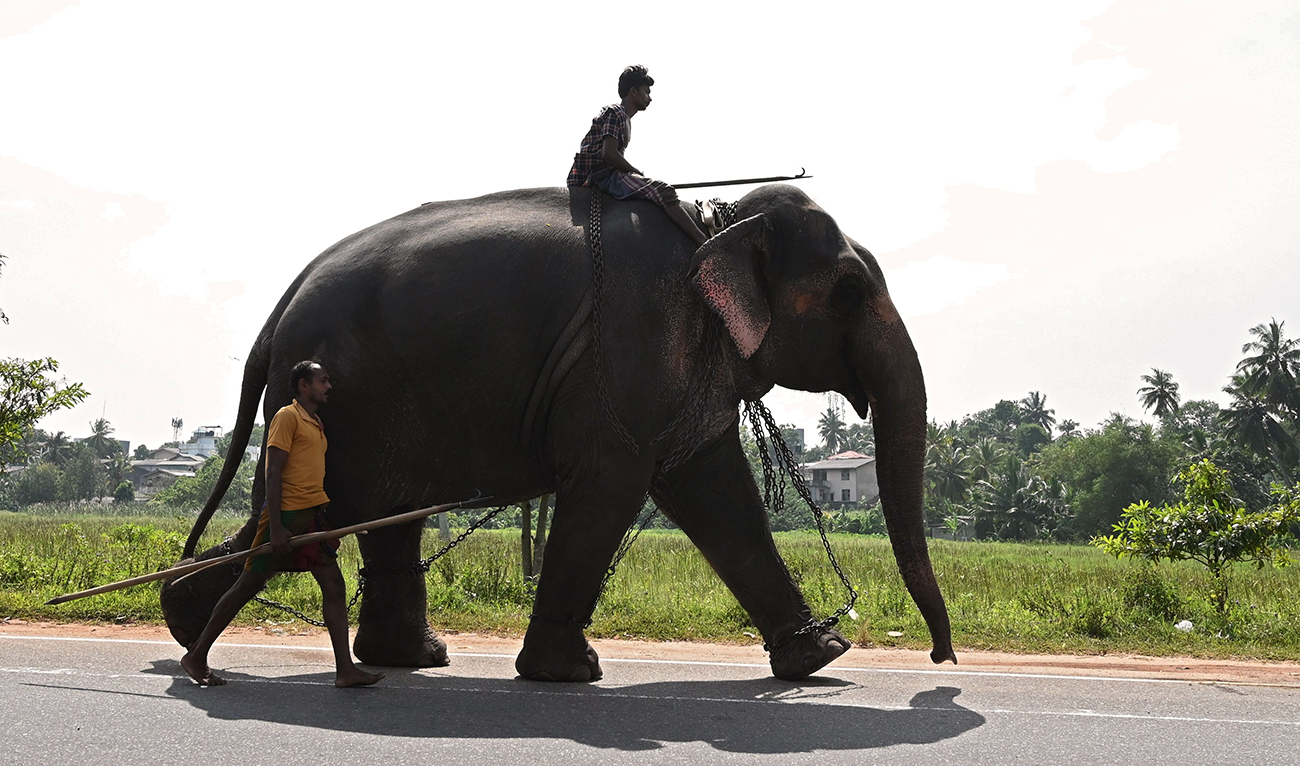COLOMBO: Sri Lanka has set a world record for the highest number of elephant deaths in the world after more than 400 died across the island nation this year.
Experts have blamed the phenomenon on a “human-animal conflict” and “inadequate” conservation efforts.
“Sri Lanka has recorded the highest number of elephants deaths in the world. This year, there were 409 elephants and 121 human deaths, respectively,” Dr. Prithviraj Fernando, a renowned elephant expert and head of the Center for Conservation and Research of Elephants, told Arab News.
He added that the death toll underwent a “drastic increase” from last year, when Sri Lanka reported 315 elephant deaths and 95 human deaths.
Speaking at a press briefing on Tuesday, Minister of Wildlife and Forest Conservation C. B. Rathnayake said that he was “determined to put an end to the crisis.”
He added: “If I fail in this effort, I will resign from my portfolio.”
Rathnayake said that the Sri Lankan government will “chalk out new regulations” to resolve the issue and “take appropriate action against wrongdoers, irrespective of their affiliations.”
Dr. Fernando, who led a special audit into the issue on the orders of the Committee on Public Accounts, said that land and territorial issues are behind the growing problem.
“More than 42 percent of the country is occupied by both elephants and humans. These elephants come to human settlements in search of food and eat the crops from the fields. The farmers react to the devastation caused by trying to kill the animals, and the animals retaliate in a deadly manner,” he said.
Fernando added that, while the Wildlife and Conservation Department (WCD) was “looking after the interests of the animals,” it was important for nongovernmental organizations to get involved in conservation efforts, too.
“The government is taking steps to conserve wild elephants by roping them in protected areas, but nongovernmental organizations should take an interest in protecting people from these animals which destroy their regular sources of income, such as crops,” he said.
An ideal solution, he added, would be to work towards “a joint approach by the government and non-government organizations to avoid such deaths.”
To avoid more fatalities, the government allocated about $460,000 this year to resolve the crisis.
However, Prof. Tissa Vitharana, a legislator and chairman of the Committee on Public Accounts, who conducted an in-depth study on the issue last year, told Arab News that a significant part of the budget was being spent on “traditional methods of separating humans from elephants.”
He said: “The elephants need a seasonal migratory path from north to south and vice versa; they should be given way through a human environment.
“Elephants should be kept away from towns and villages and allowed free movement along their paths.”
For that to happen, Prof. Vitharana proposes installing electric fences in the problematic areas.
“It’s the best solution to avoid deaths as the animals will keep away from human settlements,” he said.
Dr. Tharaka Prasad, director of health for animal care at the WCD, said that the aggressive behavior of elephants could be boiled down to one reason.
“They tend to adopt abnormal behavior if they do not get food. The conflict with humans begins when they invade settlements in search of food due to hunger,” he told Arab News.
According to data provided by the WCD, there is a separate protected park for elephants in the Kadulla Minneriyawa area, which is home to 1,680 out of the total population of 7,500 across the island nation. This is in addition to 104 sanctuaries, which include 27 national parks.

Sri Lanka prison riot over coronavirus leaves 6 deadSri Lanka lifting pandemic curfew to aid economy

